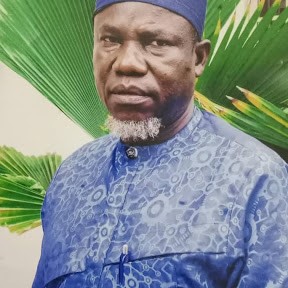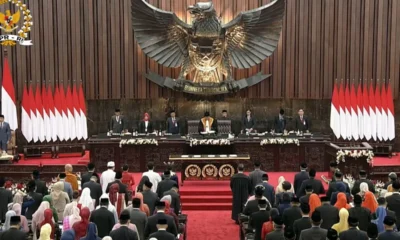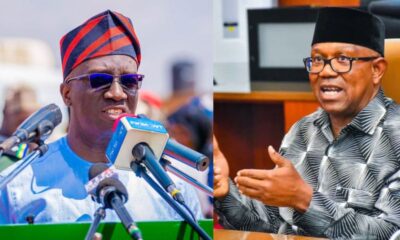Africa
Rethinking Mass Communication Education: From Job-Seekers To Job-Creators In The Digital Age -By Isaac Asabor
In fact, in a country grappling with mass unemployment, the stakes could not be higher. Each year, thousands of communication graduates flood a job market that cannot absorb them. Imagine instead if they graduated with the skills, mindset, and tools to create their own platforms and businesses. They would not only sustain themselves but also generate jobs for others, turning Nigeria’s restless youth into an engine of growth and innovation.

For far too long, many tertiary institutions teaching Mass Communication in Nigeria have operated on a narrow assumption: the goal is to produce employees for media houses, PR firms, and advertising agencies. Students are taught to write news, handle public relations, or produce adverts, but rarely are they prepared to build their own media enterprises. In today’s fast-changing media climate, that model is outdated. If institutions do not adapt, many graduates will continue to struggle in a shrinking job market, while potential creators and employers are left underprepared.
The problem is deeper than content, it is a question of vision. By training students to think only as job seekers, universities restrict ambition and shut the door on innovation. This dependency model ignores the fact that media houses themselves are shrinking, downsizing, or struggling to adapt to the digital revolution. Newspapers are losing circulation, television is battling with streaming platforms, and ad agencies are reinventing themselves to compete with influencers and AI-driven campaigns. Where does this leave the graduate whose education only prepares them for jobs that barely exist? The result is predictable: a saturated job market, underpaid graduates, and frustrated talents who could otherwise be building thriving ventures.
The irony is that institutions outside Nigeria are already recognizing this shift. At the London School of Journalism, for example, students are introduced not only to conventional areas of reporting and sub-editing but also to freelancing, blogging, podcasting, and online journalism. Their courses touch on citizen journalism, social media, and digital storytelling, demonstrating an awareness that the modern journalist is no longer confined to the newsroom but must be agile, self-sufficient, and digitally literate. Still, even there, entrepreneurship training is not deeply embedded. This is where Nigerian universities must leap forward.
It is no longer enough to produce graduates who understand communication theories or can draft a press release. Mass Communication education must be deliberately redesigned to create entrepreneurs. Students need to learn how to turn skills into business models, monetize their content across platforms, and build enterprises that employ others rather than add to the swelling ranks of job seekers. They should graduate not only with certificates but also with functioning media projects, podcasts, YouTube channels, blogs, digital magazines, or consultancies, incubated during their studies.
Given the foregoing backdrop, it is not out of place to opine that a restructured curriculum should begin at 100-level with courses that broaden the student’s perspective. Alongside introductory courses in Communication Theory, Media History, and Ethics, students should take modules such as “Introduction to Media Entrepreneurship” and “The Digital Communication Economy.” These would establish early that communication is not merely about finding a job but about creating opportunities. Students should be encouraged from the outset to see themselves as potential employers.
By 200-level, while traditional courses like News Writing, Broadcast Production, and Advertising remain, they should be paired with “Content Creation for Digital Platforms,” “Media Business Management,” and “Social Media Strategy.” Students should learn how algorithms work, how to analyze audience engagement, and how to create sustainable content projects. Crucially, every student should be required to launch a digital project, whether a blog, podcast, or online magazine, not as a side hustle but as a graded academic assignment.
At 300-level, the emphasis should shift toward monetization and branding. In addition to deeper courses in Journalism and PR, students should study “Digital Monetization Models,” “Freelancing and Consultancy in Communication,” and “Audience Engagement.” They must be exposed to income models ranging from ad revenue and sponsorships to subscriptions and merchandising. Universities should invite successful media entrepreneurs to mentor students and offer guidance. Courses on intellectual property, media law, and ethical use of digital content should also be compulsory at this stage, since ignorance of legal frameworks has destroyed many promising ventures.
By 400-level, students should focus on incubation and mastery. While completing traditional requirements like Research Methods and Project Writing, they should also take advanced modules in “Media Startup Development,” “Sponsorship and Marketing,” and “Content Scaling and Distribution.” Final-year projects should not be limited to dissertations but should also include the option of building viable media enterprises. For instance, a student might graduate by presenting a monetized podcast network, a functioning digital PR consultancy, or a scalable YouTube platform. Universities must act as incubators, providing mentorship, facilities, and even seed funding to help these projects succeed beyond graduation.
This restructured curriculum should also encourage cross-disciplinary exposure. Students should take electives in Computer Science to learn coding or web design, Business Administration to sharpen entrepreneurial skills, or Creative Arts to strengthen storytelling. Internships should extend beyond traditional media houses to include placements in digital startups, production companies, advertising tech firms, or among independent content creators who are already redefining the landscape.
If anyone doubts the importance of such reform, Nigeria’s own media entrepreneurs provide clear proof. Mo Abudu moved from television presenting to building EbonyLife Media, securing international partnerships and creating thousands of jobs. Linda Ikeji transformed a personal blog into a multimillion-naira media empire. Content creators like Tayo Aina and Jola Ayeye have built global audiences through YouTube and podcasting, monetizing their creativity without waiting for traditional employers. None of these figures are products of conventional training; they carved their own paths, but universities could, and should, be preparing students to do the same.
This is not about discarding journalism, advertising, or PR. These remain vital professions. But they must no longer define the limits of the field. Mass Communication has become an expansive discipline where creativity, technology, and entrepreneurship intersect. Mass communication graduates should be as skilled at writing a news report as they are at negotiating a sponsorship deal; as comfortable producing a broadcast documentary as they are running a monetized blog; as grounded in newsroom ethics as they are in startup culture.
In fact, in a country grappling with mass unemployment, the stakes could not be higher. Each year, thousands of communication graduates flood a job market that cannot absorb them. Imagine instead if they graduated with the skills, mindset, and tools to create their own platforms and businesses. They would not only sustain themselves but also generate jobs for others, turning Nigeria’s restless youth into an engine of growth and innovation.
Ultimately, reforming Mass Communication education is not a luxury; it is a survival strategy. Universities must stop clinging to the 1980s model of producing newsroom workers and PR officers. The media world of today is borderless, digital, entrepreneurial, and fiercely competitive. Certificates that prepare graduates for jobs that barely exist are worthless. We need a curriculum that produces thinkers, creators, and employers. The time to make that shift is not tomorrow but now.




























